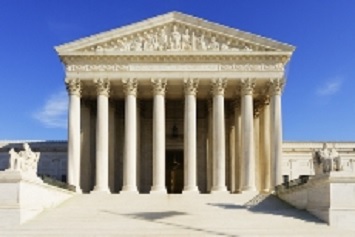Senate Democrats are likely to fiercely resist confirming Neil Gorsuch to replace the late Antonin Scalia on the U.S. Supreme Court. On January 31, 2017, President Trump broke the national suspense by nominating Gorsuch to occupy the vacant seat. But Democratic resistance may be more a consequence of Republican refusal over almost a year to even hold hearings on former-President Obama’s nomination of Merrick Garland to return the court to nine jurists. In contrast, opposing Gorsuch on his qualifications would be a very steep hill for Democrats to climb since it would be difficult to find a judge the same age as the nominee with a more outstanding resume. The third and fourth pillars the Senate will consider are Gorsuch’s legal philosophy – like Scalia, he is a constitutional originalist and a proponent of states’ rights – and his legal opinions, solidly conservative in areas such as religious freedom and capital punishment.
 |
Currently, Gorsuch serves as a justice on the U.S. Court of Appeals for the 10th Circuit, a position he has held since July 2006. Two opinions written by Gorsuch are most applicable to environmental regulation.
Energy and Environment Legal Institute v. Colorado Public Utilities Commission (July 2015)
The plaintiff, which advocates for the coal industry, argued that the Public Utilities Commission’s (PUC) 20 percent renewable energy requirement violated the Constitution’s interstate commerce clause because Colorado sends energy out-of-state and will thereby harm the plaintiff’s clients. While the Constitution does not explicitly say that the courts have the authority to strike down a state law that discriminates against out-of-state commerce, judges have found that such authority is implied or dormant in the commerce clause.
Writing for the three-judge panel, Gorsuch said that the PUC’s regulation did not violate the dormant commerce clause by discriminating against parties outside Colorado because energy purchasers inside Colorado will also see increased costs.
Gorsuch conceded that fossil-fuel producers such as the plaintiff’s clients will be hurt. “But as far as we know, all fossil fuel producers in the area served by the grid will be hurt equally and all renewable energy producers in the area will be helped equally,” Gorsuch wrote. “If there’s any disproportionate adverse effect felt by out-of-state producers or any disproportionate advantage enjoyed by in-state producers, it hasn’t been explained to this court.”
Hugo Rosario Guiterrez-Brizuela v. Loretta E. Lynch (August 2016)
This immigration case prompted Gorsuch to write a detailed concurring opinion explaining his strong opposition to Step 2 of the Supreme Court’s Chevron deference. Under step 2, the Supreme Court stated that federal courts must accept an executive branch agency’s reasonable interpretation of an ambiguous aspect of a statute. Applying Chevron Step 2, the federal courts have rejected many challenges to EPA rules that opponents allege are not authorized by federal environmental statutes.
Gorsuch believes that by invoking Step 2, the federal courts are abdicating their own precedents “simply because the agency has offered a permissible interpretation.” The consequence over time has been that executive agencies “have swallowed huge amounts of core judicial and legislative power and concentrate federal power in a way that seems more than a little difficult to square with the Constitution of the framers’ design.” Effectively, says Gorsuch, Step 2 “represents a license to executive agencies to render authoritative judgments about what a statute means,” a role that should be reserved to the courts.
Gorsuch refers to Step 2 as the “elephant in the room,” the “colossus,” the “behemoth,” and the “goliath” that must be faced for how it distorts the separation of legislative, executive, and executive functions.
“Rather than completing the task expressly assigned to us, rather than ‘interpret[ing] . . . statutory provisions,’ declaring what the law is, and overturning inconsistent agency action, Chevron step two tells us we must allow an executive agency to resolve the meaning of any ambiguous statutory provision,” wrote Gorsuch. “In this way, Chevron seems no less than a judge-made doctrine for the abdication of the judicial duty.”
Gorsuch asks, “What would happen in a world without Chevron?” His answer: “Surely Congress could and would continue to pass statutes for executive agencies to enforce. And just as surely agencies could and would continue to offer guidance on how they intend to enforce those statutes. The only difference would be that courts would then fulfill their duty to exercise their independent judgment about what the law is. Of course, courts could and would consult agency views and apply the agency’s interpretation when it accords with the best reading of a statute. But de novo judicial review of the law’s meaning would limit the ability of an agency to alter and amend existing law.”

I have a hard time getting past the fact (not alternative, rather the real thing) that Gorsuch founded and led a group called the Forever Fascist Club. Anything else pales and is just another distraction.
Editor’s Note: While it’s a fact that the “Fascism Forever Club” was included as a joke on Gorsuch’s senior page in his high school yearbook, no such club ever actually existed:
http://www.snopes.com/neil-gorsuchs-fascism-forever-club/
http://www.miamiherald.com/news/politics-government/article130517079.html